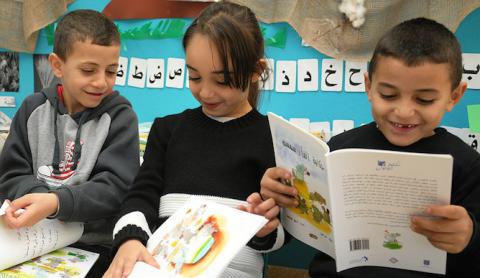Israel Expanding Hebrew Language Studies in Arab Schools
Data from the National Authority for Measurement and Evaluation in Education (known in Hebrew by its acronym RAMA) shows that 93 percent of sixth grade students in the Arab community think knowledge of Hebrew will help them succeed, but only 47 percent of Arab students are exposed to Hebrew outside of school. 26 percent read Hebrew newspapers and only 16 percent watch television shows in Hebrew.
Education Minister Naftali Bennett said the decision to move up Hebrew language instruction into preschool in Arab schools stems from thinking about the future of these children. “We believe that the better the command of Hebrew that students from the Arab community have, the better and easier they will be able to integrate into the economy, the places of work and society.” Bennett said he has promised to reduce inequality and this is one of the steps to do so.
The program will help students attain communications skills in Hebrew and allow them to participate in discussions and express their opinions in various social interactions and in different circumstances – as well as being able to understand lectures, media broadcasts and written texts, said the Ministry.
The Hebrew language program also will include familiarity with Hebrew-language culture, such as songs, literature and poetry, as well as traditional Jewish texts.
Yarden Skop

